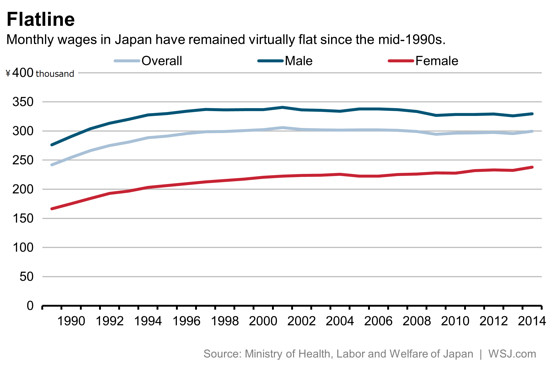
1/OK so people wanted a thread on how 2010s America is becoming 1990s Japan, so here we go.
The most obvious similarity is economic. Japan had a giant real estate bubble burst in the early 90s. Ours burst in the late 2000s.

The most obvious similarity is economic. Japan had a giant real estate bubble burst in the early 90s. Ours burst in the late 2000s.


2/The result for Japan was a "lost decade" of low growth. For us the slowdown was milder, but we still had one. 

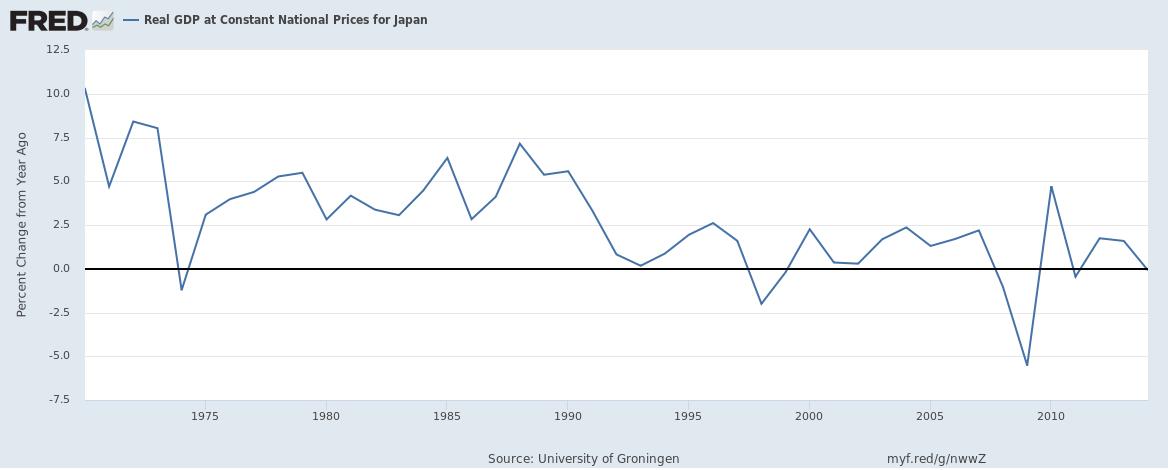
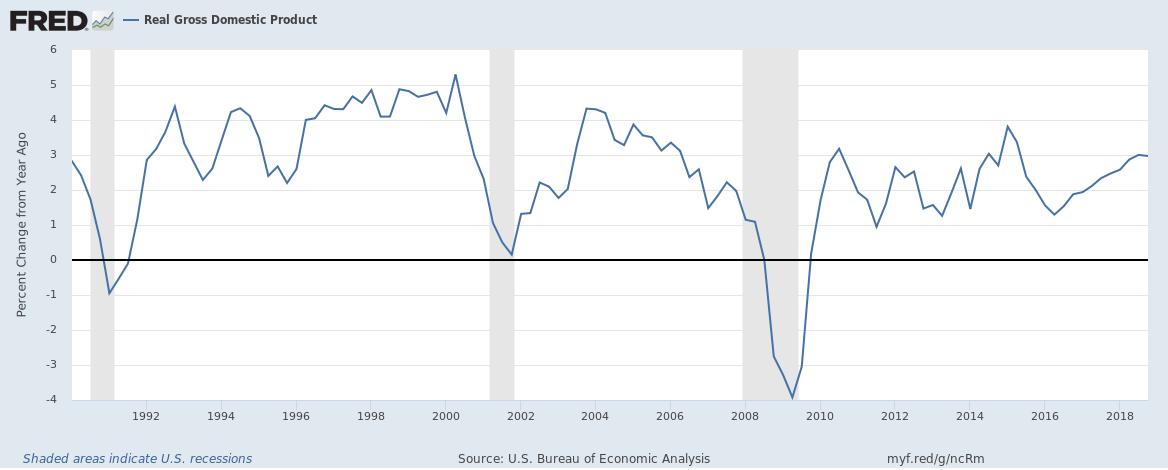
3/In both countries, the central bank responded by lowering interest rates to 0. Ours have recently come up slightly; Japan's never did. 

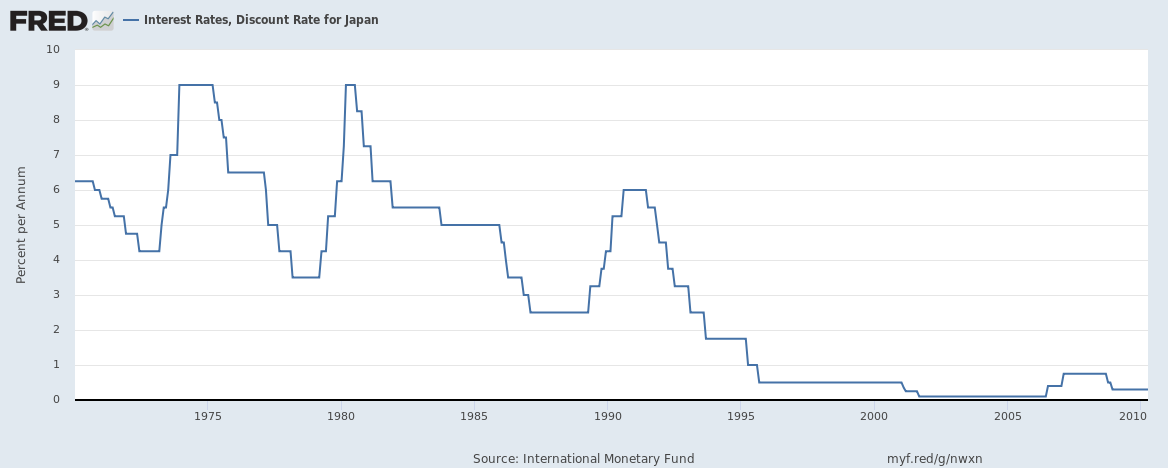
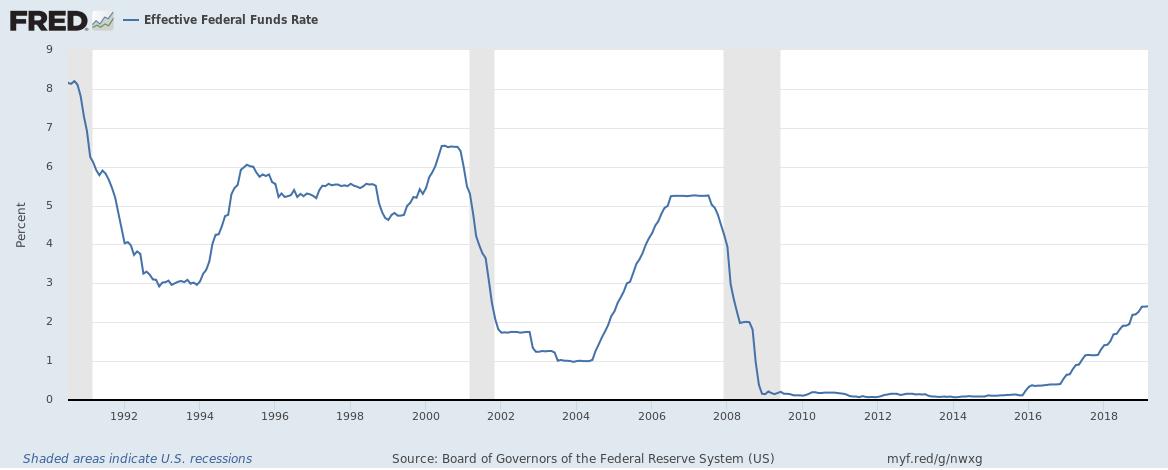
5/Along with slow wage growth and slow economic growth, both countries suffered low business dynamism - not a lot of new businesses getting started. In both countries, that trend predated the crisis.
Big business thus became more powerful in both places.
brookings.edu/wp-content/upl…
Big business thus became more powerful in both places.
brookings.edu/wp-content/upl…
6/And in both countries, fertility rates fell after the crisis. Japan's fell more. But both countries were looking at the prospect of an aging population. 
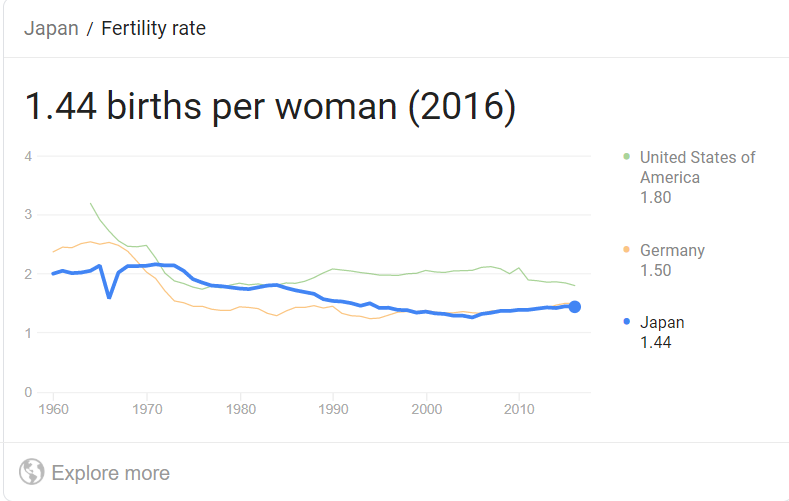
7/Add these trends up:
* slower wage growth
* big business dominance
* more old people being supported by fewer young people
The result: A loss of hope for the future.
* slower wage growth
* big business dominance
* more old people being supported by fewer young people
The result: A loss of hope for the future.
8/And yet despite these diminished prospects, Japanese kids in the 1990s found themselves still having to study like crazy in order to have a shot at one of those big corporate jobs.
theatlantic.com/education/arch…
theatlantic.com/education/arch…
9/Of course, soul-crushing college prep was for the kids whose parents thought they had a shot at the top jobs. Working-class kids dropped out of the college rat race.
Sound familiar?
Sound familiar?
10/Some blame school pressure and economic hopelessness for the rise of another trend in 1990s Japan: hikikomori, or shut-ins who never left their houses.
qz.com/789082/the-hik…
qz.com/789082/the-hik…
11/And of course, the 90s was when the "sexless Japan" trope emerged.
theguardian.com/world/2013/oct…
Young "herbivore" men were the chief worry.
slate.com/news-and-polit…
Sound familiar?
thedailybeast.com/number-of-men-…
theguardian.com/world/2013/oct…
Young "herbivore" men were the chief worry.
slate.com/news-and-polit…
Sound familiar?
thedailybeast.com/number-of-men-…
12/And another trend that emerged in 1990s Japan: Single people still living with their parents.
irishtimes.com/culture/ten-mi…
irishtimes.com/culture/ten-mi…
14/One disturbing trend from 90s Japan was "enjo kosai", or teen prostitution, where teen girls would meet middle-aged men and either sleep with them or string them along for money and gifts.
lauraagustin.com/enjo-kosai-com…
lauraagustin.com/enjo-kosai-com…
15/And 2010s America has the exact same thing, only we call it "sugar daddies".
theconversation.com/sugar-daddy-ca…
theconversation.com/sugar-daddy-ca…
16/So:
* economic stagnation
* entrenched big corporations
* massive pressure to take tests and get into college
* lost and aimless (and often sexless) youth
2010s America = 1990s Japan!
But there are some big differences...
* economic stagnation
* entrenched big corporations
* massive pressure to take tests and get into college
* lost and aimless (and often sexless) youth
2010s America = 1990s Japan!
But there are some big differences...
17/For one thing, 1990s was the height of Japanese pop (and underground) culture.
When people around the world fall in love with Japan, what they're often falling in love with is the 90s and early 00s.
theatlantic.com/entertainment/…
When people around the world fall in love with Japan, what they're often falling in love with is the 90s and early 00s.
theatlantic.com/entertainment/…
18/American pop and underground culture, in contrast, doesn't seem to be experiencing a similar efflorescence (though of course that's subjective and hard to judge).
19/Another difference is political. Japanese politics was very dysfunctional in the 1990s. They went through 7 prime ministers and other chaos.
en.wikipedia.org/wiki/List_of_P…
en.wikipedia.org/wiki/List_of_P…
20/But Japan never experienced the ugly populist politics of 2010s America. There was no big backlash against minorities (Koreans) or foreigners. There was no strongman like Trump.
21/So I don't want to overextend the analogy here.
In economic terms, and sometimes in social terms, 2010s America has followed in the footsteps of 1990s Japan. But in political terms we're responding to our slowdown in a different and decidedly more frightening way.
In economic terms, and sometimes in social terms, 2010s America has followed in the footsteps of 1990s Japan. But in political terms we're responding to our slowdown in a different and decidedly more frightening way.
22/Frankly, America could do worse at this point than to follow in Japan's footsteps. If Trump were followed by a reformist liberal nationalist like Shinzo Abe, I'd be very happy.
bloomberg.com/opinion/articl…
bloomberg.com/opinion/articl…
23/If 2020s America turns out as well as 2000s Japan, I won't be too disappointed!
(end)
(end)
• • •
Missing some Tweet in this thread? You can try to
force a refresh

